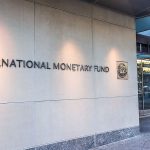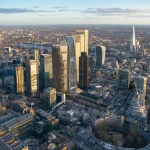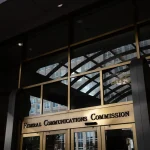Tottenham Hotspur fans can breathe easy — the north London club is firmly off the market.
The board has confirmed that its owner, ENIC Sports & Developments Holdings Ltd, has “unequivocally rejected” two separate expressions of interest in the club, making it clear that Tottenham is not for sale according to BBC News.
Takeover Rumours Sparked by Levy’s Exit
The announcement comes in the wake of the sudden departure of executive chairman Daniel Levy last week, which had ignited widespread speculation that a takeover could be imminent. Levy, who served as the Premier League’s longest-tenured chairman, is estimated to have earned over £50 million ($67.5 million) during his nearly 25-year stint. Despite his success, Levy frequently faced protests from disgruntled fans, particularly during last season, over the club’s perceived lack of progress on and off the pitch.
Reports from the Financial Times show that the board statement clarified that ENIC had received preliminary expressions of interest from two parties: former Newcastle United shareholder Amanda Staveley’s PCP International Finance Limited, and a consortium led by Dr Roger Kennedy and Wing-Fai Ng through Firehawk Holdings Limited. ENIC has firmly dismissed these approaches, reiterating that it has “no intention to accept any such offer to acquire its interest in the Club.”

Tottenham Hotspur Stadium, the club’s state-of-the-art home, combining cutting-edge design with world-class facilities for fans and players alike.
Ownership Structure of Tottenham Hotspur
ENIC holds an almost 87% stake in Tottenham Hotspur, with the remainder largely controlled by Daniel Levy and his family. UK businessman Joe Lewis and his family reportedly own the majority of ENIC. The company has consistently emphasized its long-term commitment to the club’s sporting and commercial ambitions.
Daniel Levy’s Legacy at Spurs
Levy’s departure marked the end of an era. In his farewell statement, Levy reflected on his tenure, noting: “I am incredibly proud of the work I have done together with the executive team and all our employees. We have built this club into a global heavyweight competing at the highest level.” He expressed gratitude to the supporters and reaffirmed his continued personal support for Tottenham’s journey ahead.
What This Means for Spurs’ Future
Reuters reports that while Levy’s exit initially raised concerns about instability, the board’s decisive statement provides reassurance that the club’s ownership remains committed to long-term sporting success. Tottenham’s management is focused on consolidating its position both domestically and in European competitions, with ENIC emphasizing strategic stability over a hasty sale.

Tottenham Hotspur celebrate triumph in the UEFA Europa League, lifting the trophy after an unforgettable campaign.
FAQs: People Also Ask
Why did Daniel Levy leave Tottenham Hotspur?
Levy’s departure was described as part of the club’s plan to ensure Tottenham is set up for long-term sporting success. There is no evidence linking his exit to a forced sale or external pressure.
Who attempted to buy Tottenham Hotspur?
Two parties expressed preliminary interest: Amanda Staveley’s PCP International Finance Limited and a consortium led by Dr Roger Kennedy and Wing-Fai Ng through Firehawk Holdings Limited. Both offers were rejected.
Who owns Tottenham Hotspur?
ENIC Sports & Developments Holdings Ltd owns nearly 87% of the club, with Joe Lewis and his family holding the majority of ENIC. Daniel Levy and his family own around 30% of ENIC.
Will Tottenham be sold in the future?
According to the board and ENIC, Tottenham Hotspur is not for sale, and there are no plans to accept offers to acquire the club. The focus remains on sporting and financial stability.
Conclusion
Tottenham Hotspur’s ownership saga may have made headlines, but the message from ENIC is clear: the club is not for sale. While Levy’s departure closes a chapter in Spurs history, the firm commitment to long-term strategy ensures fans can continue to focus on the team’s on-field ambitions. As one of the Premier League’s most iconic clubs, Tottenham’s story is far from static — but for now, its identity and ownership remain secure.













